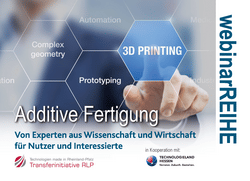Contents
What is sandstone 3D printing?
Sandstone is an ideal 3D printing material for things such as presentation models, figurines and anything else that lends itself to a full-color print. … A binding agent is added to the area of the powder that outlines the print, layer by layer, solidifying the powder into a sandstone-like material.
Can 3D printing be used for mass production?
Mass production using 3D printing can greatly reduce time to market by avoiding traditional tooling methods, cutting lead times on prototypes and end-use parts. Mass production with 3D printing doesn’t always mean directly printing end-use parts, but creating cheap, custom tooling.17 nov. 2020
How do you smooth a 3D printer with sand?
Sanding. Sanding the ABS print is simple and straightforward. First start with 100 – 200 grit sandpaper to remove stepping lines and then gradually increase up to 600 grit to achieve a smooth finish without sanding lines. Pro Tip: Sand in small circular movements evenly across the surface of the part.
Can you 3D print a ball?
You might think it is easy to 3D print a hollow ball, but it actually took me quite a few attempts to get it right. If the printer cannot get infill into the part, the print will fail, so keep that in mind. … Typically, you need at least 2 perimeter layers and some infill.30 juil. 2018
What are sandstone made up of?
Sandstones are siliciclastic sedimentary rocks that consist mainly of sand-size grains… The principal mineral constituents of the framework are quartz, feldspar, and rock fragments.
Why is 3D printing not good for mass production?
Despite the rapid progress in the 3D printing industry, other manufacturing technologies still have something to offer, namely production volume capabilities. And this remains one of the biggest challenges in 3D printing, which in most cases, can’t match the production volume of, for example, injection molding.15 mar. 2019
Is 3D printing cheaper than injection molding?
Injection molding is cheaper than 3D printing if you produce more than 100 parts. While the cost per unit using 3D printing stays relatively unchanged, the price for injection molding becomes dramatically better the more pieces you manufacture with your mold.25 nov. 2019
Is 3D printing cheaper than manufacturing?
3D printing can manufacture parts within hours, which speeds up the prototyping process. … When compared to machining prototypes, 3D printing is inexpensive and quicker at creating parts as the part can be finished in hours, allowing for each design modification to be completed at a much more efficient rate.
Can you smooth out 3D prints?
A well-known technique for smooth ABS 3D prints is to place the print in a sealed container filled with acetone mist. The acetone interacts with the ABS and melts the plastic in a slow and controlled way to create a super smooth model. … The longer the process, the more the print will smooth.
Does acetone melt PLA?
PLA can be dissolved by solvents such as acetone, ethyl acetate, methyl ethyl ketone, tetrahydrofuran and caustic soda (sodium hydroxide).
How do you smooth PLA without sanding?
The way I now smooth my PLA prints without sanding or major filler-work is to use low-viscosity epoxy resin. The way some 3D printing enthusiasts try and smooth their prints with epoxy is to mix-up their own “cocktail”. A few products work for this.
Are 3D printed bearings good?
Quality: 3D printing can be a less-professional production method for bearings, which makes diameters much harder to control, especially when using fused deposition modeling.20 oct. 2019
Do 3D printed bearings work?
Standard bearings are often not very usable due to the relatively inaccurate production by common desktop 3D printers, as the movable components are often small in comparison to the resolution of the 3D printer. However, there is a way you might be more successful.15 jui. 2017
How do you build a support for a 3D printer?

What are the three types of sandstone?
Based on hardness and color, four main types of sandstone can be recognized: (1) gray sandstone, (2) crystallized sandstone, (3) hard sandstone and (4) carbonate cemented sandstone.

